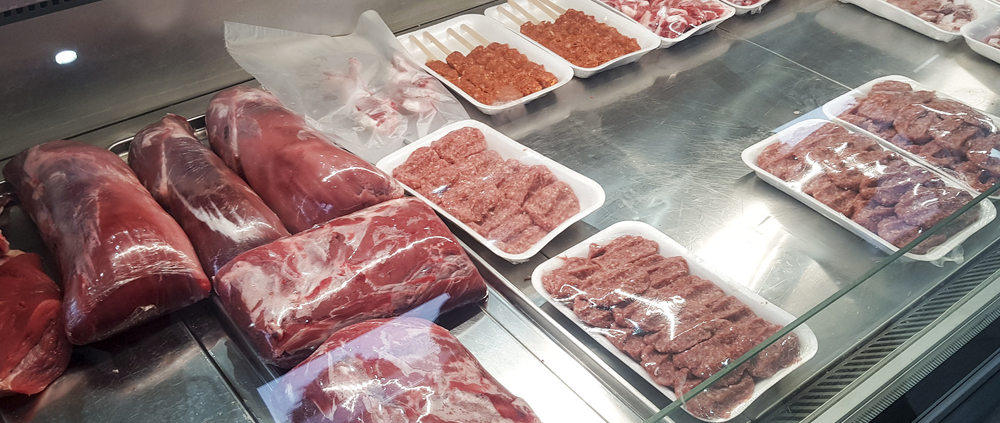Does One Need to Know If the Butcher Prays or Not?
Hanafi Fiqh
Answered by Mawlana Ilyas Patel
Question
We know it is haram to eat meat slaughtered by someone who doesn’t pray. In my country, Bangladesh, many people are Muslims, but they don’t pray at all, or they pray on and off.
So when I go to a meat shop and see the butcher, but I don’t know if he prays, what do I do?
How will I be sure if he prays or not? Do I need to be sure? Do I need to ask? Can I buy from him? I’m so confused.
Answer
In the Name of Allah, the Most Merciful and Compassionate.
I pray you are in good faith and health.
Scholars say our duty as Muslims is that if a person claims to be Muslim, there is no reason to doubt him. However, suppose there is a reason to doubt him, looking at the condition of trust in current times. In that case, it is better to buy from an approved butcher, like where local scholars and righteous Muslims buy from, or from a butcher certified by a halal certifying organization with an end-to-end process of authorizing and approving.
The jurists generally mention that one can trust another’s word, that the meat has been properly Islamically slaughtered. [Fatawa Hindiyya; Ibn ‘Abidin, Radd al-Muhtar]
Muslim Butcher Who is Not Regular with Prayer
In most cases, the butcher is the seller, who buys from the supplier and, in some cases, directly from the slaughterer. So it is a line of two or even three people.
If a Muslim butcher does not perform his prayers, it does not mean he sells non-slaughtered meat and poultry. However, as long as he is upright and sensitive to religious matters, like the importance of ritual slaughter and halal and haram, it is okay. Also, one may ask local scholars and righteous Muslims where they buy their meat from. One may buy the meat from those shops to remove doubt and find assurance of heart.
Eat Lawful (Halal) and Tayyib (Delicious/Pure)
“O mankind: Eat of all that is on earth, lawful (halal)and delicious (tayyib), and follow not eagerly the steps of the devil (…).” [Quran, 2:168]
Abu Hurayra (Allah be pleased with him) reported that the Prophet (Allah bless him and give him peace) said: “Indeed, Allah is pure and accepts only what is pure. And Allah commanded the believers as He commanded the Messengers. He says: ‘Indeed, I am All-Knowing of what you do.’ [Quran, 23:51] And He says: ‘O you who believe, eat from the good things which We have provided for you.’ [Quran, 2:172]
He then mentioned a person who travels for so long that his hair is disheveled and covered with dust. He lifts his hand toward the sky (saying): ‘O Lord, O Lord,’ but his food is unlawful, his drinks are unlawful, and his clothing is unlawful, and he has been nourished by the unlawful. So how can his supplication be accepted?” [Muslim]
Halal is just not that of a Muslim who utters Allah’s name while slaughtering as the animal exhales its last breath – which is sufficient. All animals have a right to live to a certain age, be raised well, eat good food, and get good treatment; this is desirable and important, too. All of those things constitute lawful (halal) and good (tayyib).
A Muslim should try to draw close to Allah Most High by means of acquiring and eating lawful and ethically wholesome food and not raised on unhygienic and unethically reared and nurtured animals and food. Allah commanded the believers to eat lawful, wholesome, and pure food just as He had commanded the messengers, and this should be accompanied by good deeds and gratitude to Him for His favors. [Ibn Adam al-Atyubi, al-Bahr al-Muhit al-Thajjaj Fi Sharh Sahih al-Muslim]
Related:
- A Reader on Halal Meat
- The Issue of Halal Meat (A Detailed Article)
- Wastefulness and Eating – Birgivi’s The Path of Muhammad Explained
- Halal & Tayyib: Rethinking the Ethical by Dr. Ingrid Mattson
- Eating your ethics: Halal Meat
Why not begin your search for knowledge by signing up for a course: The Fiqh of Everyday Life: A Discussion of Halal and Haram Matters.
I pray this helps with your question.
Wassalam,
[Mawlana] Ilyas Patel
Checked and Approved by Shaykh Faraz Rabbani
Mawlana Ilyas Patel is a traditionally-trained scholar who has studied in the UK, India, Pakistan, Syria, Jordan, and Turkey. He started his early education in the UK. He went on to complete the hifz of the Quran in India, then enrolled in an Islamic seminary in the UK, where he studied the secular and ‘Aalimiyya sciences. He then traveled to Karachi, Pakistan. He has been an Imam in Rep of Ireland for several years. He has taught hifz of the Quran, Tajwid, Fiqh, and many other Islamic sciences to children and adults onsite and online extensively in the UK and Ireland. He taught at a local Islamic seminary for 12 years in the UK, where he was a librarian and a teacher of Islamic sciences. He currently resides in the UK with his wife. His interest is a love of books and gardening.
